‘Marines Make Everyone Feel Better’ — So Why Aren’t They at the US Embassy in Kyiv?
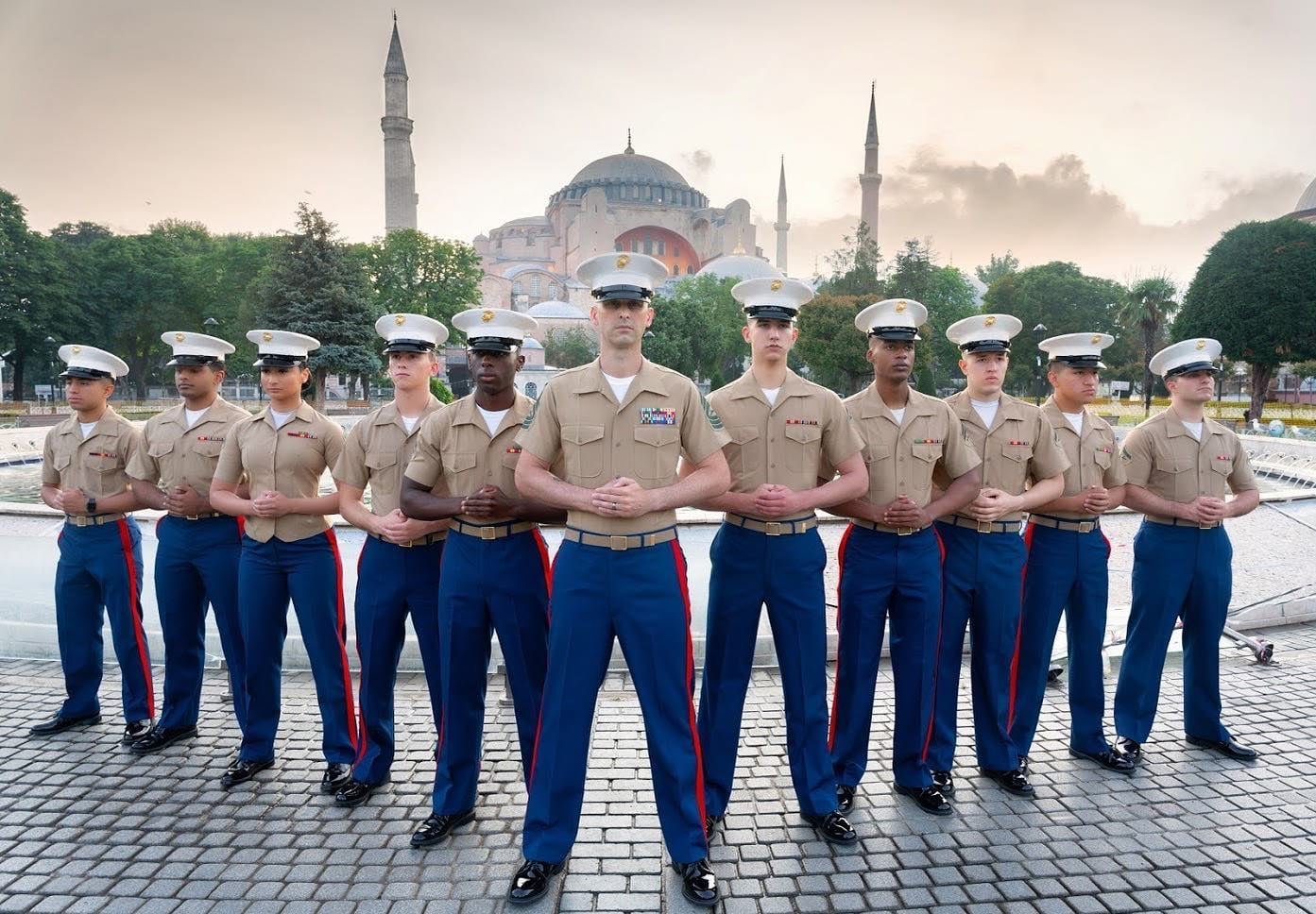
A Marine Security Guard detachment in Istanbul, Turkey. The US embassy in Kyiv reopened Wednesday, May 18, 2022. But Marines, who guard US embassies around the world, did not arrive with the returning diplomats. Photo courtesy of the US State Department Diplomatic Security Service/Facebook.
At almost every US embassy around the world, a US Marine Security Guard is the first face a visitor sees — a sight that often intrigues foreign visitors and reassures the American diplomats who work there.
“In my experience, people feel more comfortable with Marines there,” a former Marine who guarded embassies in three countries told Coffee or Die Magazine. “Marines make everyone feel better.”
However, when US diplomats returned to the American Embassy in Kyiv after it reopened Wednesday, May 18, they did so without a Marine Security Guard detachment.
The US embassy officially resumed operations Wednesday after being closed for three months because of Russia’s invasion of Ukraine. A State Department spokesperson said Friday that a “small contingent of personnel” were now back at work but that “embassy operations will remain limited for the time being.” The spokesperson confirmed that there were no Marines at the embassy and would say only that a Marine Security Guard detachment was expected “at a later date.”
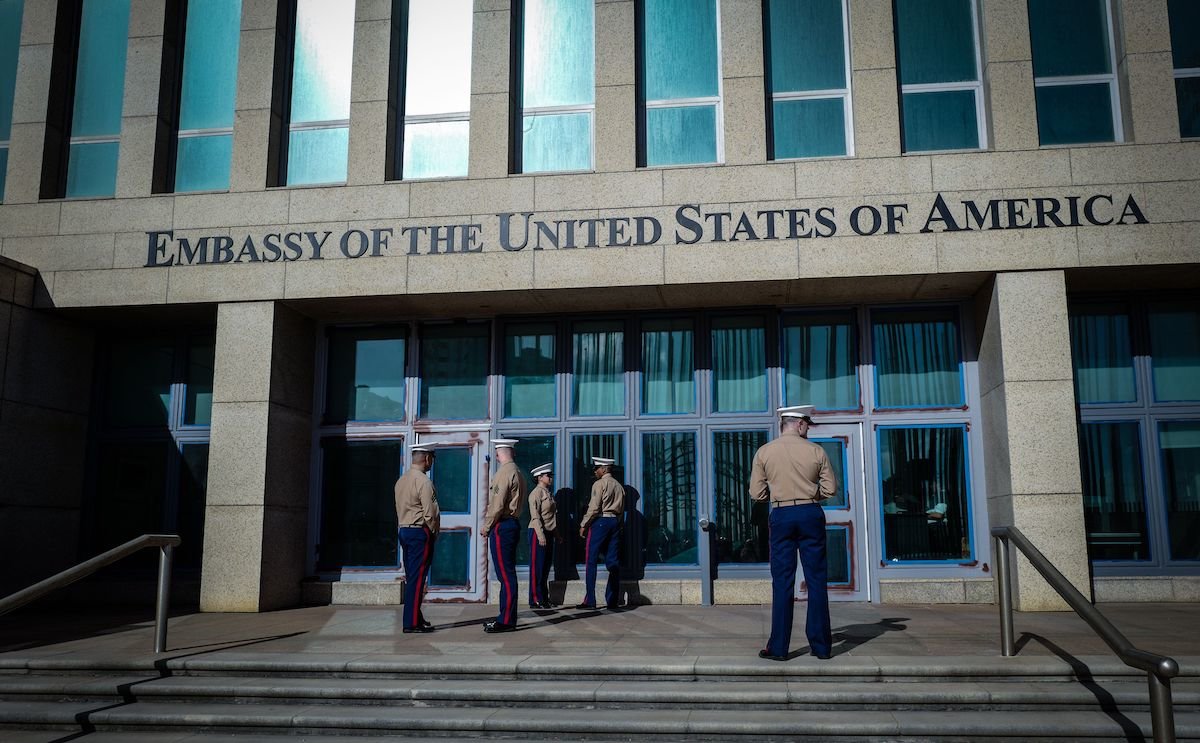
Pentagon spokesperson John Kirby said Kyiv embassy Marines were expected to deploy soon, though he would not say when.
“We have Marine Security Guards at embassies around the world. I mean, it’s not like we don’t recognize we play a role here,” Kirby said. “But the footprint of that and what that looks like and how it’s comprised is all done in close consultation with the State Department.”
The Wall Street Journal reported Sunday that the Pentagon was considering moving special operations forces to the US embassy, but Kirby said Monday that no decision had been made. “No decisions have been made, and no specific proposals have been debated at senior levels of the department about the return of US military members to Ukraine for that or any other purpose,” Kirby said in a Monday release.
Though a State Department spokesperson said they would “not comment further on the embassy security arrangements,” the department regularly fields several internal teams and private contractors who protect diplomats worldwide, many of which were created or beefed up after the death of four Americans, including the US ambassador, in Benghazi, Libya, in 2012. In that attack, Ambassador Christopher Stevens and a second diplomat died when members of a militia stormed a diplomatic compound as a civil war gripped the country.
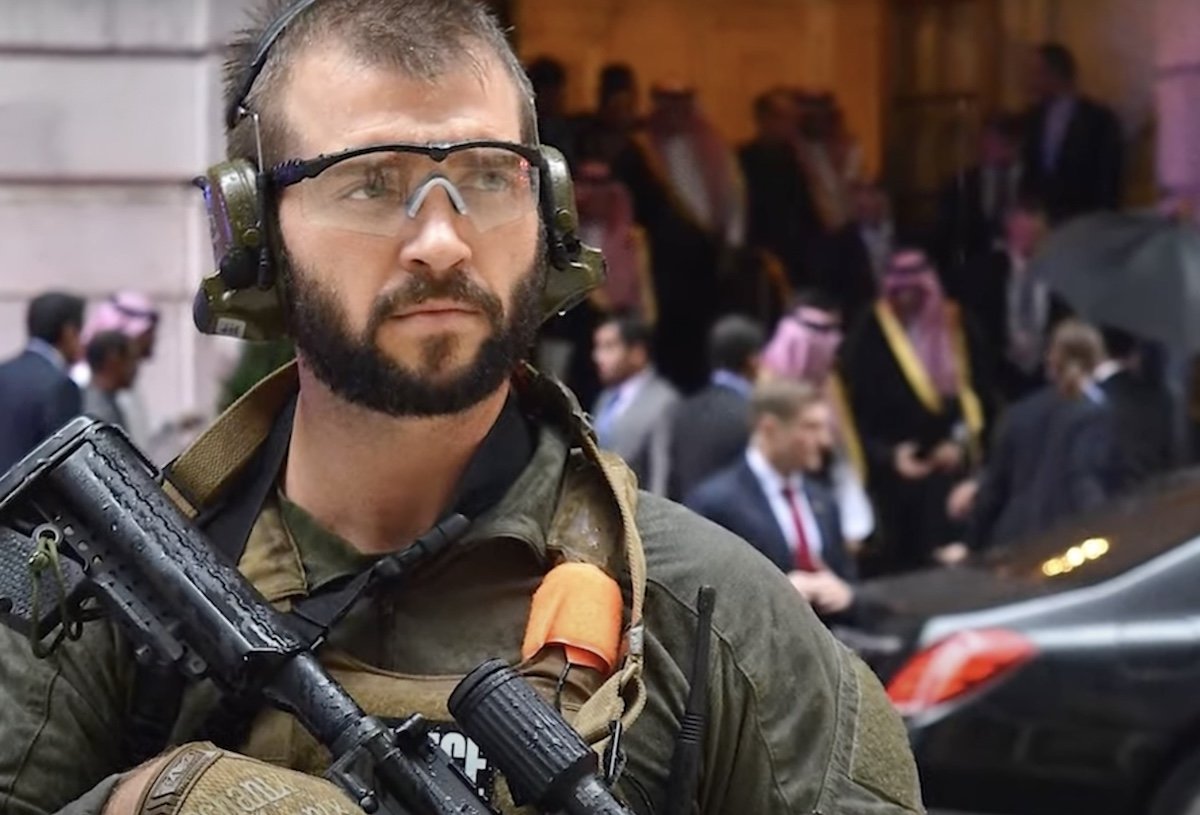
The State Department’s Diplomatic Security Service employs 2,500 agents who guard diplomats, embassies, and other facilities, according to the department’s website. When an embassy is under a specific threat, the department can send specialized tactical units of agents from a Mobile Security Deployment, or MSD, team.
MSD operators undergo a six-month, special operations-like selection training known as Green Team in which agents learn a bevy of skills more commonly associated with military special operations. Agents train in small-unit tactics, counterterrorist driving skills, land navigation, and helicopter operations and explosives training, as well as receiving advanced firearms training, according to the MSD website.
The State Department also trains local forces to assist in embassy security through the the Special Program for Embassy Augmentation Response, or SPEAR units, as well as private security contractors, who have been widely used at embassies in war zones (in the Benghazi attack, the two American non-diplomats killed were CIA security contractors). A former State Department security contractor who worked at the US Embassy in Kabul in the latter years of the Afghanistan war told Coffee or Die that hundreds of contractors would be on duty in high-risk areas to cover both physical security for buildings and direct protection for diplomats.
But the absence of Kyiv embassy Marines appears to track with the Biden administration’s bright line on keeping the American military off of Ukrainian soil. Though the US military has been training Ukrainians on donated American weapons systems and has coordinated weapons shipments from close to a dozen countries, all of the training has been in Poland, Germany, and elsewhere, while US officials have made it clear that the US delivery pipeline ends at the border. “The idea that we’re going to send in offensive equipment and have planes and tanks and trains going in with American pilots and crews, just understand […] that’s called ‘World War Three,’” Biden said in a March 11 speech.
Still, Marine Security Guard, or MSG, detachments have formally provided security at US embassies and consulates since 1948 in more than 150 countries. As diplomats carry out their duties, Marines provide security for the buildings and the people, property, and sensitive materials inside. According to two former Marine embassy guards who spoke with Coffee or Die, detachments have anywhere from fewer than 10 to close to 30 Marines, depending on the size of the embassy and perceived threats.
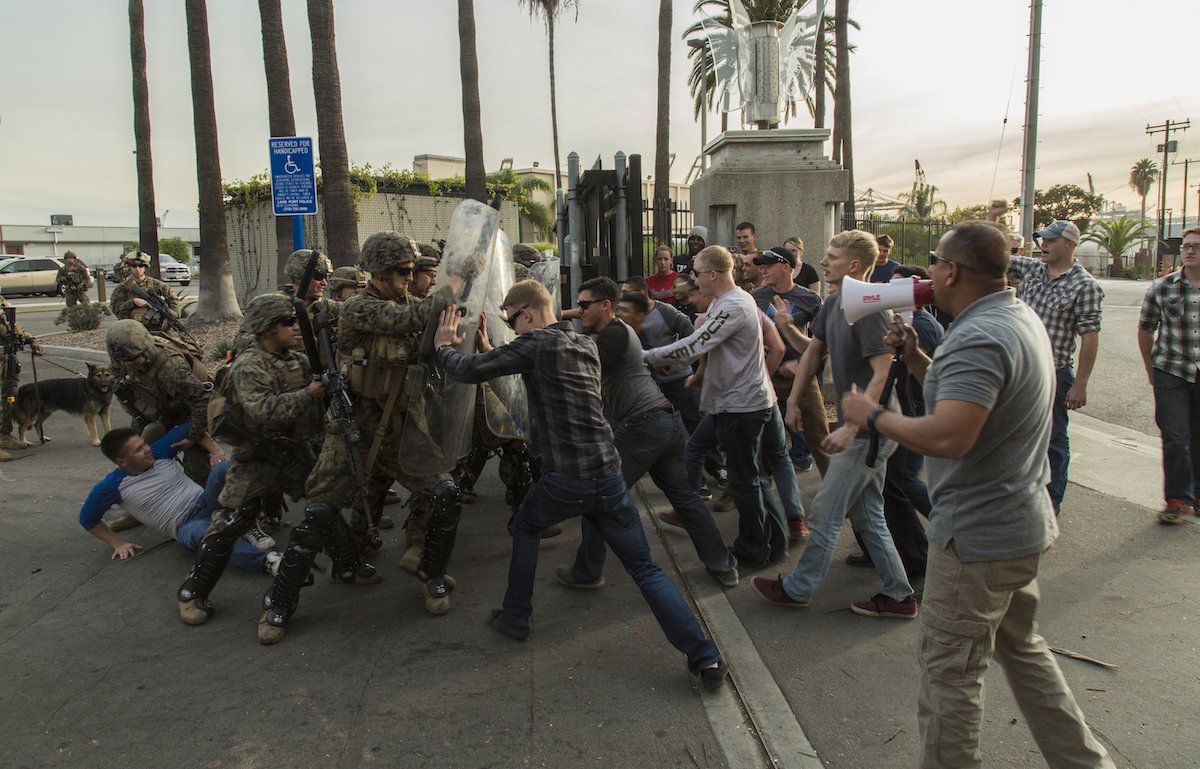
“Marine Security Guards provide access control [to the buildings] and respond to situations if something goes wrong,” said one of the former guards, who served in US embassies in Germany, Georgia, and Trinidad and Tobago.
Regardless of what nation the embassies are in, the MSGs all follow the same rigid procedures. MSGs refer to their command and control center inside an embassy as Post One. “Think of it like the Starship Enterprise bridge,” one former MSG said. “They have buttons all over the place, screens, controls for doors, alarms.”
When an alarm trips, Marines grab their weapons and move to a “react room” where they keep pre-staged equipment, including armor, weapons, and radios. From there, they might move to preset observation posts or go clear the building, depending on the threat. Embassy Marines drill constantly to know every room and exit, every door that leads in or out, even whether a door can be locked — every detail of a facility’s structure.
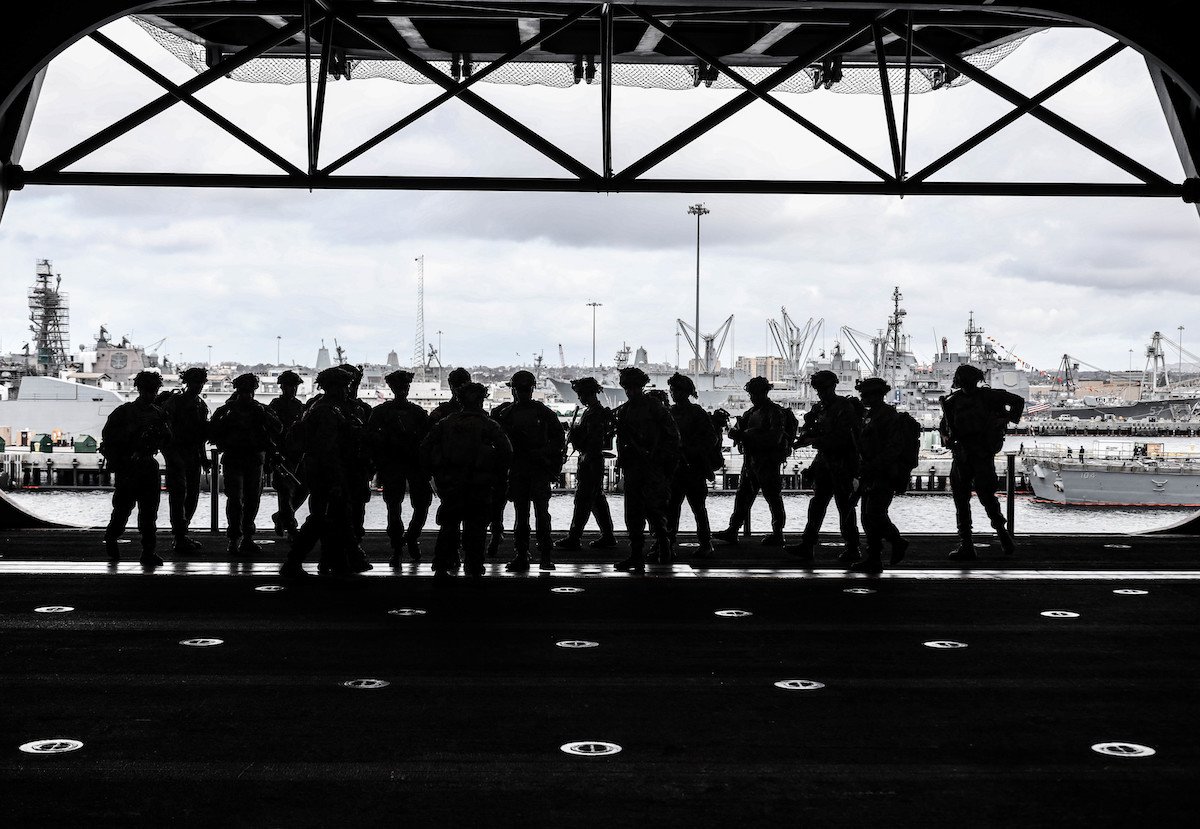
A former guard who was stationed in Luanda, Angola, said Marines there would practice using rubber door jams to secure doors during drills because most door handles in the building did not lock.
Defense protocols vary by threat, but the former guards said Marines worked through tabletop scenarios and a minimum of three live drills per month — and often more — which can include role players. Marines regularly train for protests, riots, chemical attacks, bomb threats, armed intruders, and evacuations.
Beyond the on-site teams, Marine Expeditionary Units train specifically to evacuate Americans from embassies.
When North Korea invaded South Korea in 1950, Marines helped evacuate Americans from the US embassy in Seoul, and they were the last troops defending the US Embassy in Saigon, South Vietnam, as helicopters ferried diplomats and workers from the roof in 1975.
“It’s just better if there are Marines there,” one of the former MSGs said.
Read Next:
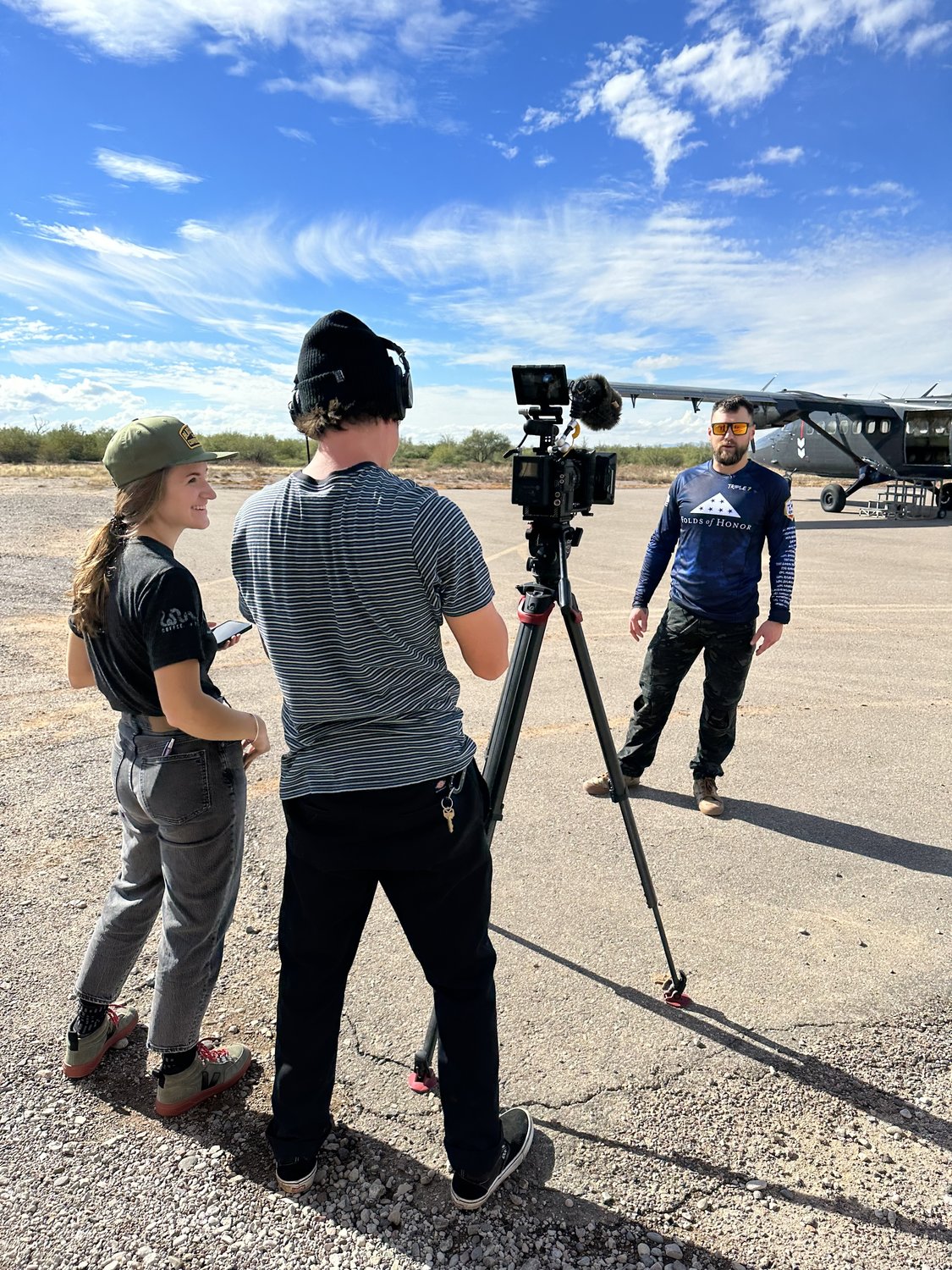
Jenna Biter is a staff writer at Coffee or Die Magazine. She has a master’s degree in national security and is a Russian language student. When she’s not writing, Jenna can be found reading classics, running, or learning new things, like the constellations in the night sky. Her husband is on active duty in the US military. Know a good story about national security or the military? Email Jenna.
BRCC and Bad Moon Print Press team up for an exclusive, limited-edition T-shirt design!
BRCC partners with Team Room Design for an exclusive T-shirt release!
Thirty Seconds Out has partnered with BRCC for an exclusive shirt design invoking the God of Winter.
Lucas O'Hara of Grizzly Forge has teamed up with BRCC for a badass, exclusive Shirt Club T-shirt design featuring his most popular knife and tiomahawk.
Coffee or Die sits down with one of the graphic designers behind Black Rifle Coffee's signature look and vibe.
Biden will award the Medal of Honor to a Vietnam War Army helicopter pilot who risked his life to save a reconnaissance team from almost certain death.
Ever wonder how much Jack Mandaville would f*ck sh*t up if he went back in time? The American Revolution didn't even see him coming.
A nearly 200-year-old West Point time capsule that at first appeared to yield little more than dust contains hidden treasure, the US Military Academy said.












